Daniel Polti
ROSARIO, ARGENTINA (AP) – Fernanda Quiroga still remembers how Lionel Messi played football in what were then dirt roads around their working class neighourhood in Rosario, Argentina’s third-largest city.
“(Messi) was always kicking something, a ball, a bottle cap,” said Quiroga, who at 35 is the same age as the captain of Argentina’s national football team.
“The memory I have of him because he lived right in front of my house, is going to buy sweet pastries at his grandmother’s around the block and he was always kicking something.”
Excitement for tomorrow’s World Cup final, when Argentina will face defending champion France in Qatar, is rising fast and anxiety is running particularly high in Messi’s hometown as many are hoping this will be the year when Messi finally wins the one major trophy that has been missing from his illustrious career.
“Even though it pains us all, it’s been said this is Leo’s last World Cup, so we’re all hoping he wins it, I think more for him than for the national team itself,” Quiroga said.
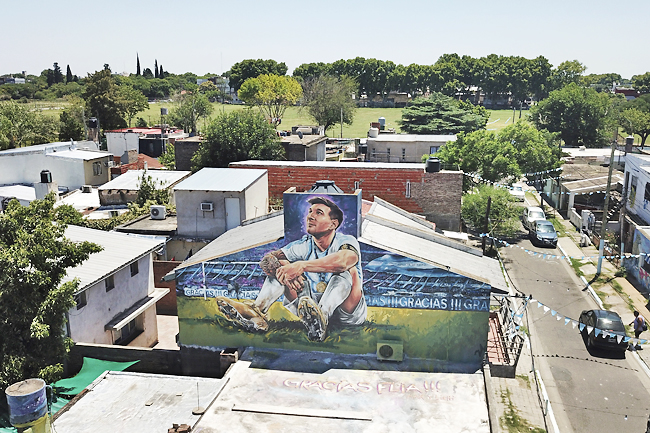
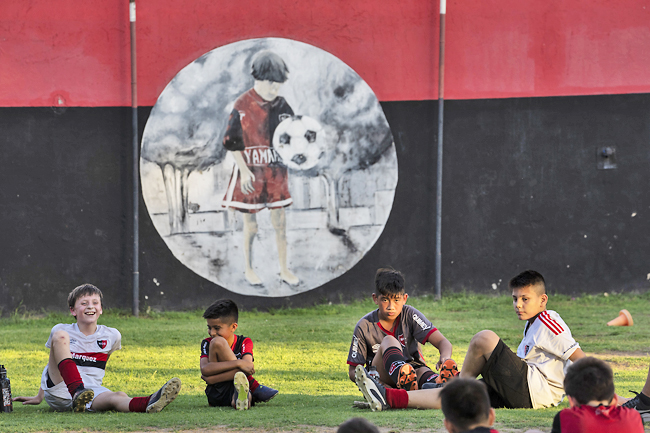
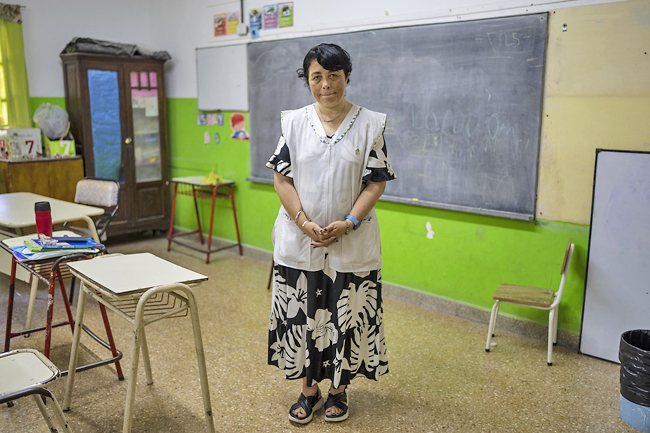
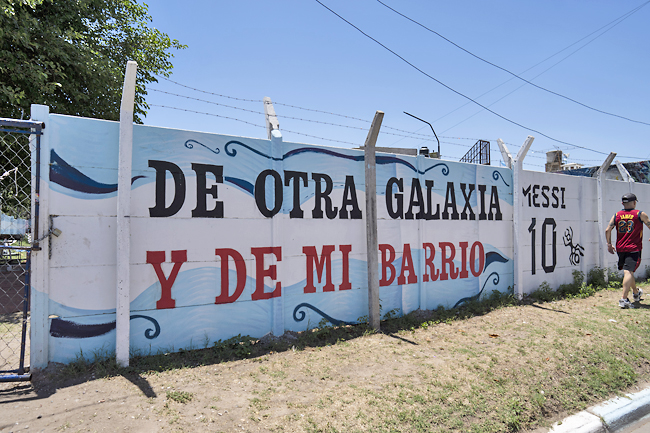
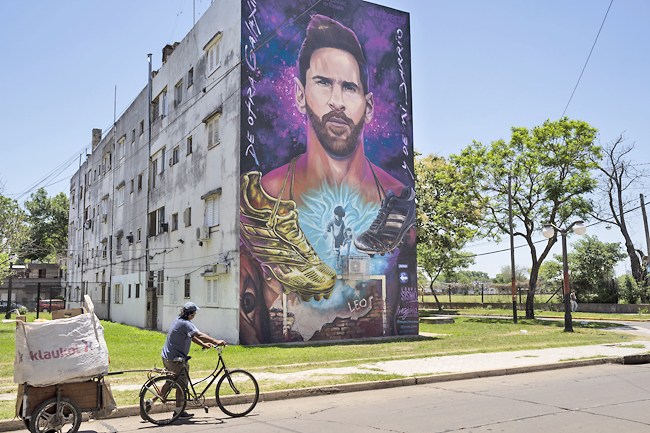
“I think what weighs more this time around is that we want him to get it because he has generated so much love and respect.”
After beating Croatia in the semi-finals on Tuesday, Messi said tomorrow’s match would likely be his last in a World Cup.
The neighourhood popularly known as La Bajada has turned into a sort of altar for Messi with murals and graffiti that praise the football star.
“From another galaxy and from my neighourhood,” reads graffiti that is seemingly ubiquitous in the area.
A large mural of Messi looking up at the sky is painted on the side of his old house that still belongs to his family.
“The little guy was very spicy. If he got mad, he grabbed the ball and took it away,” said Marcelo Almada, a 37-year-old construction worker who played football with Messi in the streets around the neighourhood where he still lives.
“He didn’t like to lose… but he was a very good kid.” With the World Cup, “there has been an explosion in the neighourhood,” where “we’re all like brothers”, he added, noting that after every Argentina victory people celebrate in the streets until the early hours of the morning.
The neighourhood has also turned into a place of pilgrimage, with fans from all over the world coming to visit Messi’s old house and the small football field in the corner where he started to learn the skills that would eventually turn him into an all-time great.
“I’ve been a fan of Barcelona and Messi since I was a little boy and… my dream is to see Messi win (the World Cup),” said 23-year-old Israeli Niv Reznik who travelled to Argentina with a group of friends to watch the tournament in the homeland of the football star who played 17 seasons with Barcelona.
When Reznik and his friends got to Messi’s house, one of them kneeled and waved his hands in ovation.
A few blocks away, another person who is hoping for a Messi victory is 55-year-old Andrea Liliana Sosa, who was Messi’s math and science teacher in fifth and sixth grade.
“He was a quiet and dutiful student, responsible with what he had to do for school and well loved by his classmates… especially during the breaks to play ball,” Sosa said in one of the classrooms of the school that has chipped paint across many of its walls. “He was very focussed on football.
“(A victory tomorrow) would be like the cherry that he’s missing, so let’s hope he makes it, but he has done enough already to be recognised and loved by everyone,” she added.
Schoolchildren are living the World Cup “with a beautiful passion” and want Argentina to win “for Messi”, said a 13-year-old student Milena Fernández who was standing in front of a large mural of the football star on the school’s grounds.
Across the street from the school, another large mural of Messi adorns the side of a residential building that has also turned into a place of pilgrimage for fans. ”We’ve even seen people praying here,” said 21-year-old Valentina Rota who lives in the building.`
“There’s a whole feeling of belonging because he was born around the corner, he’s one of us, he’s a neighbour.” Messi, and the national team as a whole, have managed to raise the hope and optimism of Argentines in a country that has been stuck in economic doldrums for years with one of the world’s highest inflations rates, closing in on almost 100 per cent per year, and where close to four of every 10 people live in poverty.
“Everyone wants Messi to win and that generates a community, a very pleasant feeling that is very infrequent in Argentina, which is always fighting, divided, angry, frustrated,” said an endocrinologist Dr Diego Schwarzstein who treated Messi for growth hormone deficiency until he left for Barcelona at 13 after the European club promised to pay for his costly treatment.
In Rosario, a city marred by drug violence, that feeling seems even more stark.
“You forget a little bit about the murders, the robberies and all other things that are happening,” Sosa said. “This distracts us a little bit.”
It isn’t, of course, just about a distraction. For those who have followed Messi’s career from the beginning, a victory tomorrow would mean the culmination of lifelong work considering the football star himself has talked about the importance of winning a World Cup title.
“Despite the fact that he’s now a rock star, has a beautiful family, a gorgeous wife, a bulky bank account and lots of popularity, his path was not covered in rose petals,” Dr Schwarstein said.
“Those of us who know that path, and know the importance this Cup has for him, profoundly want him to have it. We all have the dream that he will come back,” Quiroga said.









